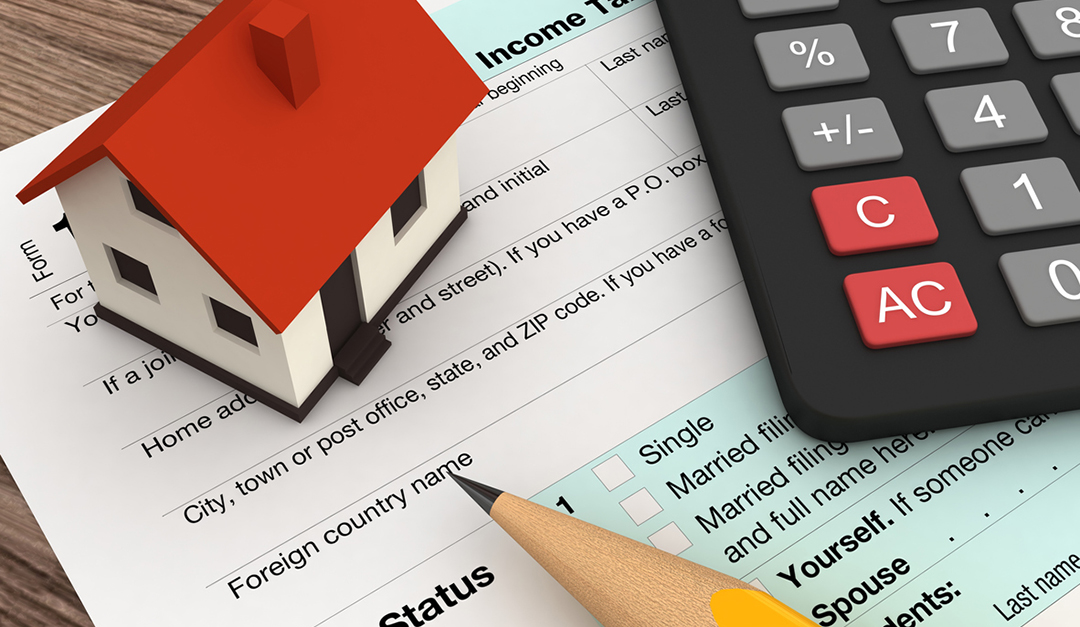(TNS)—While owning rental property may not help you earn truly passive income, becoming a landlord can still build long-term wealth. After all, owning rental property means having your renters pay down the mortgage on a property you own.
Depending on how much you can charge for rent, you may even be able to secure a monthly stream of income after you account for vacancies, repairs, property management fees and other expenses.
But, you have to think about more than just cash flow when you buy a property to rent out. Just like buying a property to live in, purchasing residential or commercial rental property comes with its own tax consequences—both good and bad.
Before you buy your first rental property, here are the major tax ramifications to know about:
You can deduct certain expenses on your personal tax return.
First, let’s go over some good news. According to Paul T. Joseph, attorney, CPA and founder of Joseph & Joseph Tax & Payroll in Williamston, Mich., one of the most important aspects of owning rental real estate is the fact you can deduct certain expenses on your personal tax return.
“Any expenses directly related to the care, maintenance, upkeep, replacement of personal property and repairs to the property can be deducted,” he says.
In addition to ongoing expenses like homeowners insurance and property taxes, this can include furnace repairs, a new paint job in the home’s interior, lawn mowing services, and more.
However, don’t confuse maintenance and upkeep with property improvements, which are handled a different way. As the IRS notes, you cannot deduct the cost of improvements. Instead, you can “recover some or all of your improvements” by using Form 4562 to report depreciation beginning in the first year your property is rented and beginning in any year you make subsequent improvements. However, “only a percentage of these expenses are deductible in the year they are incurred,” they note.
You can deduct depreciation of your property.
Speaking of depreciation, Riley Adams, CPA, who is a senior financial analyst at Google and the owner of financial independence and entrepreneurship site Young and the Invested, says you can also benefit from deducting depreciation of your property on your taxes. Depreciation, as it is called, allows landlords to write off part of the loss in value of the property’s structures due to age, wear and tear and basic deterioration. For residential property, depreciation is typically deducted over 27.5 years.
Adams also notes that a powerful shield against taxation for rental properties comes in the form of MACRS Depreciation, or Modified Accelerated Cost Recovery System. This tax item allows for the acceleration of depreciation expense, thereby decreasing taxable income in the present while increasing it in the future, he says.
With MACRS Depreciation, the rental property owner can realize a lower net present value in terms of tax burden because a dollar today is worth more than a dollar tomorrow.
You can deduct rental property income losses up to certain limits.
Many would-be landlords believe they should be able to deduct losses from this activity, but that’s only true to a certain extent. In terms of deductions, you get to take the cost of repairs, maintenance, taxes, insurance, depreciation and any other expenses that are associated with the property. However, under the current act, you are limited to deducting losses that exceed income by $25,000, says Joseph.
“So, in effect, if you had income of $20,000 and expenses of $50,000 you would only be able to deduct $25,000,” he says. From there, you may be forced to carry forward the additional $5,000 in expenses to future years or when the property is finally sold.
However, your ability to deduct losses even then is limited if your income is too high. According to the IRS, your ability to write off $25,000 in losses is cut by 50 percent if your modified adjusted gross income (MAGI) is over $100,000. Once your MAGI is over $150,000, you lose the ability to deduct rental losses altogether.
If you sell, you’ll pay capital gains tax.
Finally, don’t forget about tax consequences you’ll face when you finally go to sell your rental property. According to Adams, this is where some landlords take a big hit.
Because rental property does not qualify for the gain on sale exclusion, any appreciated value above the taxable basis—or the amount you spent to purchase the property and bring it into its rentable state—counts as either a short-term or long-term capital gain depending whether the property has been held for less than a year or more, he says.
This means you’ll pay capital gains taxes at your regular income-tax rate for properties you’ve owned for less than a year. On the flip side, properties you sell that you’ve owned for more than a year should be taxed as long-term capital gains, which are currently set at 0 percent, 15 percent or 20 percent, depending on your income.
Keep in mind just how different this tax situation is compared with your own residence. As the IRS notes, you can sell the home you live in and avoid paying taxes on up to $250,000 in profits for single filers or $500,000 in profits for married couples filing jointly. The main requirement to qualify for this exclusion is owning your home and living in it as your primary residence for at least two out of the last five years.
©2019 Bankrate.com
Distributed by Tribune Content Agency, LLC











